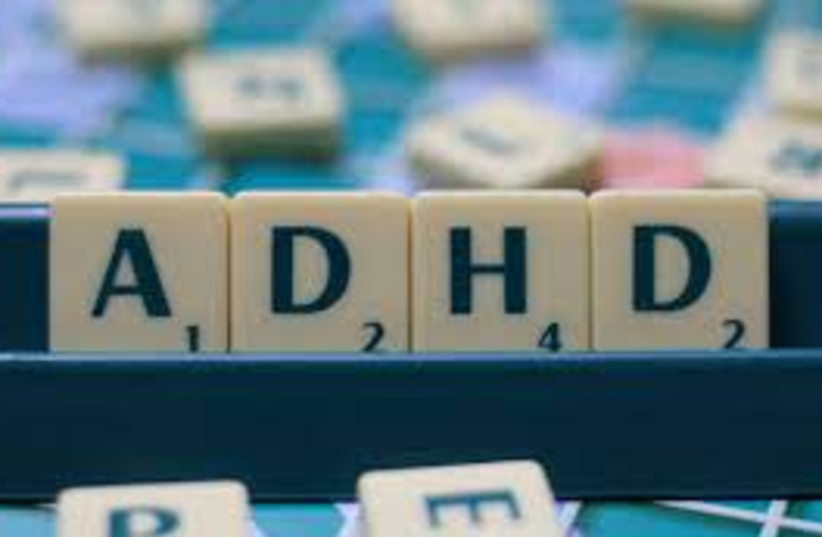Most of us are emotionally exhausted. Our minds seem to be controlled by mischievous monkeys swinging wildly from branch to branch – unable to sit still. We are short-tempered and curt when asked to comply with those around us. On the other hand, we are addicted to our screens and seem to be absorbed by the sea of senseless information that springs forth in the form of news and social media. Welcome to the world of ADHD (attention deficit hyperactivity disorder).
In this time of chaotic crisis, our brains have converted into the regular neurological state of most people who suffer from ADHD. Our emotional centers are on full alert. More frontal, analytic areas of brain function are somewhat anesthetized. We crave stimulation and have little self-control. For most of us, this temporary status is distressing. For those with attention deficit hyperactivity disorder, it is a life-long challenge.
Years ago, when I served as an IDF psychologist, I was asked to counsel two young soldiers, both diagnosed with ADHD and taking medication. The soldiers were in a fighting unit stationed in the central part of the country. When battle with the Palestinians broke out in the South, they deserted their units and infiltrated units fighting in Gaza.
I asked them why they acted as such. Their reply was simple and direct. They found it intolerable to guard a settlement, when all of the action was occurring South of their location. They needed to be in the midst of battle, because that was of the highest importance and urgency. They could not tolerate the non-stimulating, unstructured situation of guarding someplace else.
After the horrific pogrom of October 7, as a nation, we have been conditioned into a state that highly resembles ADHD. There are several principles that we can apply, both to ourselves and our children, as we wrestle with this most challenging time. By the way, these suggestions also work if you happen to have a child who suffers from ADHD in a chronic fashion.

ADHD coping skills Israelis could use after October 7
- Schedule your days, hours, and minutes. As life is chaotic and with limited structure it is essential to have your days at home scheduled. Mornings, evenings, and afternoons must be planned out so that all can clearly see a daily routine.
- Make Visual Reminders of Parental Expectations. If you are a parent of children, create visual images that will jog your child’s memory of what you expect of him. For example, if you expect him to practice violin, make sure a picture of the violin is hanging prominently with the time of his lesson underneath it. If you plan on having dinner at five, make sure you have a picture of a family enjoying dinner and the time that you expect all to be at the table.
- Give your children tasks that are conveyed as important and urgent activities. Let’s say that you need to rest between 1 and 2 in the afternoon. Explain to your 12-year-old who is entrusted with babysitting, how essential this sleep is for your ability to function without collapsing. Similarly, if you need the kitchen floor washed, explain to your child how doing this today is an essential activity, that if not done will threaten the health of the family. When we stress the urgency of activities, we significantly increase the probability that they will get done.
- When you need to give a command, state it as a command and not as a request or question. If you need your children to clean their rooms, state in a simple and clear way what you expect of them. Do not ask for them to please clean their room if they are able. Tell them that their room must be cleaned now and describe exactly what you mean. List specific tasks such as picking up rotting food, dirty underwear, and anything else that falls under your definition of cleaning the room.
- Make sure to remain positive in ways that those around you can observe and react to. Reward positive behavior in children. Compliment friends and co-workers. Be kind to your stressed-out spouse. When we transmit positivity, it tends to be reflected back to us, and our experience of daily living is enhanced.
- Take time to do things that are essential for your well-being. If you go work out, just do it. If you learn, just do it. If you usually meet friends for coffee, just do it. By doing these things, you are empowering yourself to be productive and useful to those around you. If you neglect these activities, you are in danger of collapse.
No one can be sure for how long we are to remain in this status of an ADHD nation. We can be certain that we are likely to be here for days, weeks, and months. In spite of the uncertainty, all self-care and organization that we undertake now, will have long-lasting positive effects, long after the current crisis has ended.
The writer is a clinical psychologist who has helped thousands cope with stress in war and times of peace. He served as a psychologist in the Israeli army for 22 years. He has recently published a book Kosher ADHD as a means of helping Jewish families cope with the challenges of Attention Deficit Hyperactivity Disorder.
